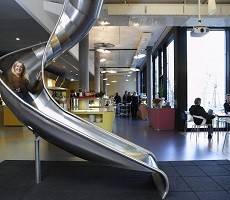June 17, 2016
Women’s long hours working linked to alarming increases in serious illness 0
 Women who put in long hours for the sake of their careers may pay a heavy price including life-threatening illnesses, such as heart disease and cancer. Work weeks that averaged 60 hours or more over three decades appear to triple the risk of diabetes, cancer, heart trouble and arthritis for women, according to new research from Ohio State University and published in The Journal of Occupational and Environmental Medicine. The risk begins to climb when women put in more than 40 hours and takes a decidedly bad turn above 50 hours, researchers found. Men with tough work schedules appeared to fare much better, found researchers who analysed data from interviews with almost 7,500 people who were part of the National Longitudinal Survey of Youth. More scheduling flexibility and on-the-job health coaching, screening and support could go a long way toward reducing the chances employees become sick or die as a result of chronic conditions, according to the report.
Women who put in long hours for the sake of their careers may pay a heavy price including life-threatening illnesses, such as heart disease and cancer. Work weeks that averaged 60 hours or more over three decades appear to triple the risk of diabetes, cancer, heart trouble and arthritis for women, according to new research from Ohio State University and published in The Journal of Occupational and Environmental Medicine. The risk begins to climb when women put in more than 40 hours and takes a decidedly bad turn above 50 hours, researchers found. Men with tough work schedules appeared to fare much better, found researchers who analysed data from interviews with almost 7,500 people who were part of the National Longitudinal Survey of Youth. More scheduling flexibility and on-the-job health coaching, screening and support could go a long way toward reducing the chances employees become sick or die as a result of chronic conditions, according to the report.

































June 10, 2016
What holiday? Why it is vital for productivity to take a digital detox 0
by Ciara McGrath • Comment, Flexible working, Wellbeing, Workplace
(more…)